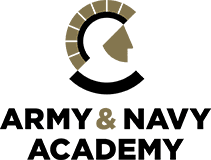
Table of Contents
- Learning Strategies for Dyslexia in Private Schools
- Types of Diagnoses for Learning Differences/Disabilities
- How to Help Students with Dyslexia
- How to Find the Best Boarding Schools for Dyslexia
In this article, we will help you gain a better understanding of learning differences, common terminology, how to identify and support dyslexia, and a sample list of some of the best private schools for dyslexia in the United States.
For more information and commonly asked questions about learning differences in general, check out this article.
Learning Strategies for Dyslexia in Private Schools
To help students with dyslexia, “Learning Strategies” is a common name for programs at private schools. In particular, this approach often emphasizes study skills and also incorporates approaches to increase mental fitness and mindfulness.
At many boarding schools with specialized learning programs like Army and Navy Academy, the Learning Strategies program offers students with dyslexia a chance to improve in a number of areas. These areas include: organization, time management, homework strategies, active reading, study skills, note taking, test taking, test anxiety, self-advocacy, goal-setting, intrinsic motivation, memorizing, listening skills, and active participation.
Types of Diagnoses
To gain a better understanding of dyslexia, let’s review terms and some common diagnoses. Check the ones that you think may apply to your teen, but seek expertise through professionals when trying to diagnose dyslexia and/or other learning differences.
Private schools for students with dyslexia typically have specialists on staff. They are trained to determine the testing and best academic approaches. They have studied and may hold specific degrees and certifications to equip them to support students.
Private schools employ their own methods to track progress and do assessments for students with dyslexia. This gives them a great deal of flexibility to best support every individual student.
By contrast, public schools take a different approach and are required to follow specific guidelines in working up an IEP or 504 plan.
Terminology for Learning Differences
- Dyslexia – According to the Yale Center for Dyslexia and Creativity, “dyslexia is an unexpected difficulty in reading for an individual who has the intelligence to be a much better reader. It is most commonly due to a difficulty in phonological processing (the appreciation of the individual sounds of spoken language), which affects the ability of an individual to speak, read, spell, and often learn a second language.” To find a private school for students with dyslexia, look for specialized learning strategies programs under their academic electives or in sections of their website about support services.
- Dyscalculia – Dyscalculia applies to math. Individuals with dyscalculia have difficulties with math at various levels, including basic math problems, as well as more abstract math.
- ADD and ADHD – This description below will help you understand the current use of these terms. Attention deficit hyperactivity disorder (ADHD) is a neurological or psychological disorder. Technically speaking, attention deficit disorder (ADD) is no longer a medical diagnosis, but “ADD” is often used to refer to Predominantly Inattentive Type ADHD and associated symptoms. Since 1994, doctors have been using the term ADHD to describe both the hyperactive and inattentive subtypes of attention deficit hyperactivity disorder – ADDitude.com
- Twice Exceptional – This term refers to intellectually gifted children who have one or more learning disabilities. This can include dyslexia.
- Executive Function – Developing Child at Harvard defines executive function as follows: “Executive function and self-regulation skills are the mental processes that enable us to plan, focus attention, remember, and juggle multiple tasks.”
- Processing Speed Deficits- Understood.com clarifies the subtle differences. “Processing speed isn’t an executive skill, but it can affect executive function. Slow processing speed impacts working memory, flexible thinking, organization, planning, and attention skills. Mistaking slow processing speed for challenges with executive skills is common.”
- Assistive Technology – Generally, this term refers to technology devices, tools, or software used in a classroom setting to enable students with learning differences accomplish tasks more efficiently and effectively
10 Tips to Help Teens with Dyslexia at School and at Home
- Find books they enjoy – Find books for pure enjoyment and read books out loud together. Take turns to ease the pressure or simply read to them.
- Create a calm study space – Find a quiet, clean, and orderly space to ease tension and stress associated with learning and studying.
- Ask for extra time on tests – In school, request extra time on tests if needed. Most schools will accommodate this request.
- Provide time out for breaks – It is important, both at school and at home, to take breaks. It can be a quick walk, shooting baskets, listening to music, a craft project or anything to ease the mind.
- Celebrate successes – Dealing with dyslexia is challenging, so it is really important to celebrate successes, both big and small (e.g. finishing a book, writing an essay, solving a math problem).
- Develop a plan for organization – Teens with dyslexia often have trouble getting organized. Create simple systems for recording dates and deadlines on a calendar, keeping track of projects, and even organizing thoughts (e.g. outlines).
- Allow lectures to be recorded – In some cases, dyslexia can be supported through auditory options. Teens with dyslexia are often fond of videos and audiobooks for this reason. Recording lectures may help.
- Create a balance with verbal responses – In classes, working in teams and presenting information orally can balance some of the pressure of written lessons.
- Don’t pressure students to read orally – If a teen is very self-conscious and has trouble reading out loud, avoid requiring them to face a group of students.
- Consider an exemption from foreign language learning – In some private and public schools, students with dyslexia may not be required to take foreign language courses. Check the school policy and ask about alternatives. You could even test a teen’s interest and abilities via an app like Babble, watching foreign films with subtitles, and visiting other countries. .
Top Dyslexia Boarding Schools in the U.S.
You may be asking “are boarding schools good for dyslexia?” A sampling of boarding schools in the U.S. are shown below.
As you research, narrow your list and explore school differences by visiting actual private school (day schools) and boarding school websites.
- Admiral Farragut Academy, St. Petersburg, Florida
- Applewild School, Fitchburg, Massachusetts
- Army and Navy Academy, Carlsbad (San Diego), California
- Asia Pacific International School, Hauula, Hawaii
- Besant Hill School, Ojai Valley, California
- Brewster Academy, Wolfeboro, New Hampshire
- Camden Military Academy, Camden, South Carolina
- Chaminade College Prep School, St. Louis, Missouri
- Darrow School, Lebanon, New York
- Dunn School, Ojai Valley, California
Resources:
Additional private schools and boarding schools for dyslexia can be found on various websites with directory listings. Sites include: Boarding School Review, Private School Review, Niche, Great Schools, Boardingschool.com, Come Study USA, AMCSUS (military schools) and Kamer Power.
Hopefully, you are now aware of the common terms and understand a bit more about dyslexia and what to look for when researching and visiting private schools.
Understanding terminology and putting some approaches into practice can help you feel more confident as you support your teen with dyslexia. As we know more, the stigma of being dyslexic is diminishing. No child should ever feel ashamed for who they are and how their brain works. As a society, we all play a part in celebrating the differences in how we each learn. It all begins at home and in school.
If you are actively searching for the right private school for dyslexia or a boarding school for dyslexia, don’t forget to contact admission offices at schools to learn more about their Learning Strategies and other support programs. Go on a campus tour with your teen and learn more about private day schools in your area and U.S. boarding schools.
